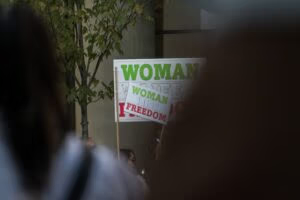Labor organizing has a long and rich history that dates back to the Industrial Revolution in the 18th and 19th centuries. During this time, workers faced harsh working conditions, long hours, and low wages. In response, workers began to organize and form unions to advocate for better working conditions and fair wages. One of the earliest and most well-known labor organizations was the Knights of Labor, which was founded in 1869 and sought to unite all workers, regardless of skill or trade. The American Federation of Labor (AFL) was founded in 1886 and became one of the most influential labor organizations in the United States. These early labor organizations laid the groundwork for the modern labor movement and set the stage for the development of labor laws and regulations that protect workers’ rights.
As the labor movement continued to grow, workers began to use collective bargaining as a tool to negotiate with employers for better wages, benefits, and working conditions. This led to the passage of important labor laws, such as the Fair Labor Standards Act of 1938, which established a minimum wage and overtime pay for workers. The labor movement also played a crucial role in the civil rights movement, as unions fought for equal pay and opportunities for all workers, regardless of race or gender. Today, labor organizing continues to be an important tool for workers to advocate for their rights and improve their working conditions.
The Importance of Labor Organizing in the Modern Workplace
In the modern workplace, labor organizing remains crucial for ensuring that workers have a voice and can advocate for their rights. With the rise of globalization and technological advancements, workers face new challenges and uncertainties in the workplace. Labor organizing provides workers with a collective voice to address these challenges and negotiate for fair wages, benefits, and working conditions. In addition, labor organizing helps to address issues such as workplace discrimination, harassment, and unsafe working conditions.
Furthermore, labor organizing is essential for addressing income inequality and ensuring that workers receive a fair share of the profits they help generate. Without strong labor organizations, workers may be at the mercy of employers who prioritize profits over the well-being of their employees. By organizing and bargaining collectively, workers can ensure that their voices are heard and that they receive fair compensation for their labor. In today’s rapidly changing economy, labor organizing is more important than ever for protecting workers’ rights and ensuring that they have a say in their working conditions.
Strategies and Tactics for Effective Labor Organizing
Effective labor organizing requires careful planning and strategic tactics to build solidarity among workers and negotiate with employers. One key strategy is to build strong relationships among workers and create a sense of unity and purpose. This can be achieved through regular communication, organizing meetings, and social events that bring workers together. In addition, educating workers about their rights and the benefits of collective bargaining can help build support for labor organizing efforts.
Another important tactic is to engage in direct action, such as strikes or demonstrations, to put pressure on employers to meet workers’ demands. By demonstrating their collective power, workers can show employers that they are serious about their demands and are willing to take action to achieve them. Additionally, forming alliances with other community organizations, such as religious groups or advocacy organizations, can help amplify workers’ voices and build support for their cause. By using a combination of these strategies and tactics, labor organizers can effectively mobilize workers and negotiate with employers to achieve their goals.
Challenges and Obstacles Faced by Labor Organizers
Despite the importance of labor organizing, there are many challenges and obstacles that labor organizers face in their efforts to advocate for workers’ rights. One major challenge is employer resistance to labor organizing efforts. Many employers view unions as a threat to their authority and may use tactics such as intimidation, harassment, or even illegal firings to discourage workers from organizing. In addition, some employers may engage in anti-union propaganda or misinformation campaigns to undermine support for labor organizing.
Another challenge is the lack of legal protections for workers who engage in labor organizing activities. While there are laws that protect workers’ rights to organize and bargain collectively, these laws are not always enforced effectively. As a result, workers may face retaliation or discrimination from employers for their involvement in labor organizing efforts. Furthermore, some workers may be hesitant to join a union due to fear of reprisal or concerns about job security.
The Role of Unions in Labor Organizing
Unions play a crucial role in labor organizing by providing workers with a collective voice and the resources they need to negotiate with employers. Unions serve as a platform for workers to come together, discuss their concerns, and develop strategies for addressing workplace issues. In addition, unions provide valuable resources such as legal support, training programs, and financial assistance to help workers organize and advocate for their rights.
Furthermore, unions play a key role in negotiating collective bargaining agreements with employers to establish fair wages, benefits, and working conditions for workers. Through collective bargaining, unions can help ensure that workers receive fair compensation for their labor and have a say in workplace policies that affect them. Unions also provide support for workers who face discrimination or harassment in the workplace, advocating on their behalf and helping them navigate legal processes.
The Impact of Labor Organizing on Workers’ Rights and Conditions
Labor organizing has had a significant impact on workers’ rights and conditions throughout history. Through collective action and advocacy, workers have been able to secure important protections such as minimum wage laws, overtime pay regulations, workplace safety standards, and anti-discrimination policies. In addition, labor organizing has helped to address issues such as child labor, sweatshop conditions, and unfair treatment of immigrant workers.
Furthermore, labor organizing has played a crucial role in advancing social justice causes such as civil rights and gender equality. Unions have been at the forefront of advocating for equal pay for women, ending racial discrimination in the workplace, and promoting diversity and inclusion in the workforce. By mobilizing workers and advocating for policy changes, labor organizing has helped to create more equitable and inclusive workplaces for all.
The Future of Labor Organizing in a Changing Economy
As the economy continues to evolve with technological advancements and globalization, the future of labor organizing faces new challenges and opportunities. With the rise of gig economy jobs and non-traditional work arrangements, there is a growing need for new strategies to organize and advocate for the rights of these workers. Additionally, as automation continues to replace traditional jobs, there is a need for labor organizers to address issues such as job displacement and retraining programs for affected workers.
Furthermore, the COVID-19 pandemic has highlighted the importance of labor organizing in addressing issues such as workplace safety, paid sick leave, and remote work arrangements. As workers continue to navigate these challenges, labor organizers will need to adapt their strategies to address these new realities. Despite these challenges, there are also opportunities for labor organizing to grow and expand its reach through digital organizing tools and social media platforms.
In conclusion, labor organizing has played a crucial role in advancing workers’ rights throughout history and remains essential in the modern workplace. By building solidarity among workers, engaging in strategic tactics, and advocating for policy changes, labor organizers can continue to make a positive impact on workers’ lives. As the economy continues to change, labor organizers will need to adapt their strategies to address new challenges and opportunities in order to ensure that all workers have a voice and can advocate for fair wages, benefits, and working conditions.











